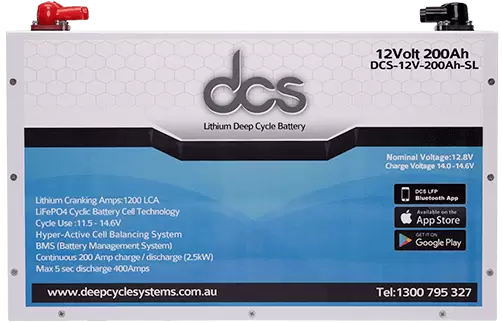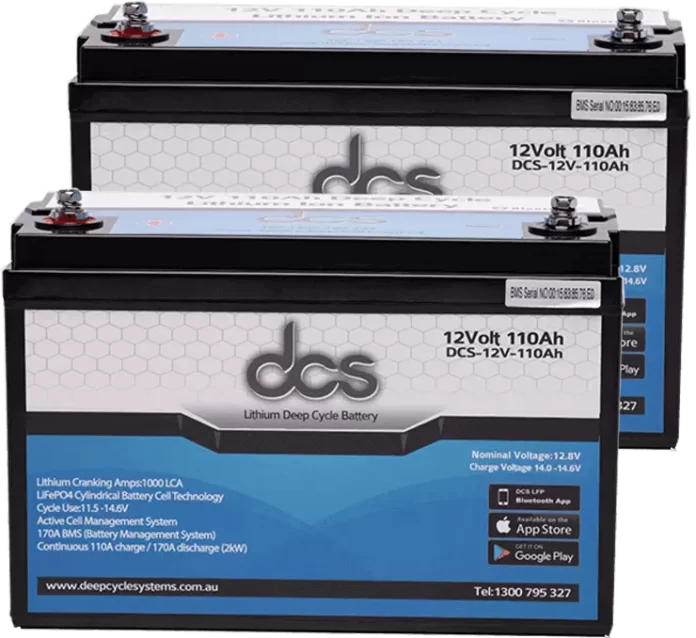When it comes to powering your home appliances, the type of battery you use is just as crucial as the appliance itself. From 12v Lithium Batteries Australia to 12v lithium-ion batteries, choosing the right kind of battery can make a big difference in the performance and lifespan of your appliances. In this blog post, companies will discuss the right way to use batteries in your devices, exploring the different types of available batteries and how to choose the right one for your specific needs.
What are the Different Types of of of Batteries?
When it comes to powering your appliances, a variety of batteries are available on the market. The most common types are alkaline, lithium-ion, and nickel-cadmium. Each class has pros and cons, so it’s essential to understand the differences to choose the best option for your appliance. DCS batteries are the most commonly used battery type and are widely available in sizes from AAA to D. They are relatively cheap. They can be used for many devices, such as remote controls and flashlights. However, their lifespan is shorter than other battery types, and they can lose their charge over time if not used. Lithium-ion batteries are more expensive than alkaline batteries but offer a much longer lifespan.
They are also rechargeable and can be used for various electronic devices
Including cameras and laptops. These 12 V Lithium Ion Batteries also require very little maintenance and tend to have a low self-discharge rate, meaning they will retain their charge even when unused. Nickel-cadmium batteries are another popular choice and are often used in cordless tools and other small electronics. They are usually more affordable than lithium-ion batteries but have a shorter lifespan. They must also be disposed of correctly as they contain hazardous materials.
Each battery type has advantages and disadvantages
So choosing the right one for your device is essential. To ensure you get the most out of your battery, read the instructions carefully before purchasing or using it.
 What the re the Pros and Cons of Each Type?
What the re the Pros and Cons of Each Type?
When it comes to powering your appliances, there are a few different types of 12v Lithium Batteries that you can use. Each type of battery has its own set of pros and cons.
One popular option is 12v lithium batteries.
These batteries are lightweight and can provide high energy density. They have a longer lifespan than other types of batteries, so you won’t need to replace them as often. However, they are more expensive than different types and require special chargers.
Another option is 12v Lithium Batteries.
These batteries provide a steady power source and have a higher energy density than other types. They also last longer than different types. On the downside, these batteries are more expensive and require specialized charging systems.
Finally, there are 12 v lead acid batteries.
These 12v Lithium Batteries are relatively inexpensive and provide a steady source of power. However, they don’t last as long as other types of batteries, and they require more frequent recharging. Each type of battery has its unique advantages and disadvantages. It’s essential to research each type of battery before deciding which one is right for your needs.
Which Type of Battery is Best for My Appliance?
When choosing the right type of battery for your appliance, the most crucial factor to consider is the size and shape of the storm. You must ensure the battery is compatible with the device’s design. For example, if your device requires a 12-volt battery, you must select one from a range of 12-volt lithium batteries.
The next step is to assess the power needs of your appliance. You will need a higher or lower-capacity battery, depending on how often you use your device. For instance, if you use your machine regularly, you should opt for a higher-capacity battery. This will ensure that your device is not left without power too quickly.
Another factor to consider is the overall cost of the battery.
Some batteries may be more expensive, but they could provide better performance and reliability. As such, it is essential to consider all factors before deciding. Lastly, it would be best to look at the battery’s safety features. 12-volt lithium batteries tend to be very safe, but other types of batteries may be more dangerous or less reliable. It is essential to ensure the battery you choose meets all safety requirements.
In conclusion, when selecting a battery for your appliance
It is essential to consider several different factors. These include size, power requirements, cost and safety features. By assessing these variables, you can find the best type of battery for your appliance and ensure that it operates efficiently for many years.
How Long Will the Battery Last?
One of the most important considerations when choosing the correct battery for your appliance is the battery’s longevity. This is especially true for 12V lithium batteries, as their performance and lifespan depend on the quality of the storm.
The average lifespan of a 12V lithium battery is around 3 to 5 years. However, this can vary greatly depending on how often you use the appliance, how you charge and store the storm and the overall quality of the storm. High-quality lithium batteries are typically more expensive but offer more extended life expectancy.
To get the most extended life out of your 12V lithium battery
Make sure that you store it in a cool, dry place and charge it regularly according to the manufacturer’s instructions. Additionally, try to avoid running the battery down before setting it, as this can damage the cells and shorten their life.
How Do you Dispose of the Battery Properly?
When disposing of batteries, it’s essential to do so safely and responsibly. It would be best never to throw a storm in the trash or place it in an area where it can cause harm to people or the environment.
The best way to dispose of 12v Lithium Ion Batteries is by recycling them. Many stores and businesses accept them for free or will provide a discount on their products if you bring them in. Alternatively, you can drop off your used batteries at a local recycling centre.
When recycling lithium batteries
It is essential to ensure they are correctly packaged before bringing them in. This includes putting them in a sealed container with a lid, such as a plastic bottle or metal box. This will help prevent any leakage from occurring during transport.
If you have many batteries
You may need to find a battery recycler who can process them. This is especially important for larger commercial establishments that use lithium batteries regularly. Several companies offer this type his type of recycling and can provide more detailed instructiimproper disposal.
By recycling your 12v Lithium Ion Batteries
You are helping reduce the amount of hazardous waste in landfills and preventing potential environmental damage. Additionally, some recyclers may also be able to provide you with rewards or discounts when you bring in your used batteries.
Conclusion
When it comes to powering your appliances, it’s essential to choose the right type of battery. 12v lithium batteries are a great choice because they are long-lasting and have a high power output. They are also lightweight and easy to install. However, it’s essential to be aware of the pros and cons of each type of battery before making a purchase. Additionally, you should know how to properly dispose of your battery when it is no longer usable. With these tips, you can ensure that you choose the correct battery for your appliance and will get the most out of it.
Related Websites:
Articles on Blogshunt
Articles on tbablogs
Articles on Blogspeoples
Articles on Thebigblogtheory
Articles on Allcityforums

